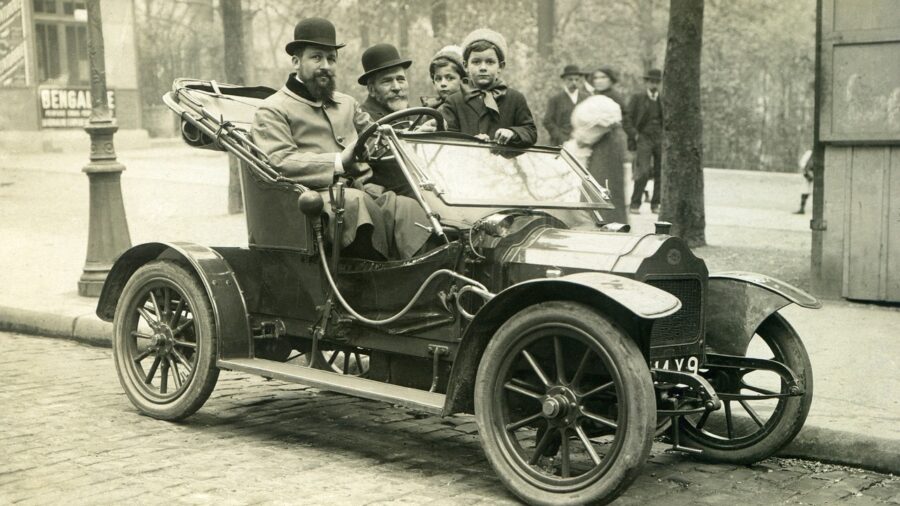Modern cars are brimming with new technologies to make the process of driving easier and safer. At the same time, are they breeding a false sense of security? We look at how modern cars may be better designed, but our driving skills could be getting worse.
Are our driving skills getting worse?
Do you think our driving skills are getting worse? Many people seem to think so, particularly as modern cars have so many features to make driving easier. Reversing cameras and sensors, automatic emergency braking and lane changing technology are increasingly common. Yet research suggests drivers have become too complacent about the driving tasks their vehicles can do. For example, many drivers look only at the screen when reverse parking and don’t look at what’s behind them.
While new cars have more safety and driver assistance features, drivers have to be more aware not less. There are more cars on the roads. Congested roads create all kinds of hazards that didn’t exist when people drove old fashioned cars. They can also create bad habits. For example, picking up the bad habits of other drivers to get to where you are going more quickly.
Meanwhile, most people think they are good drivers. They’re quick to blame other drivers while feeling safe and protected inside the walls of their own vehicles. Unfortunately, drivers with these attitudes may have a false sense of security and overconfidence about their own driving skills.
Did we drive better in old cars?
Some claim that old cars, far more than modern cars, forced drivers into honing their skills. They didn’t have the luxuries of power steering or comfortable suspension, and brakes were not nearly as effective. Drivers had to read the road well ahead to allow them to brake in time; they had to predict the curves of the roads and movements of other drivers to steer effectively.
As one journalist said, it was the same “trust nobody” driving that motorcyclists deal with all the time. Modern car technologies engender a sense of trust that was never possible in old cars. In fact, modern cars can make drivers lazy or complacent.
Does tech make us too complacent?
It’s human nature to want the best result for the least amount of work (Zipf’s Law). So it’s no surprise that many drivers make full use of their vehicle’s driver assistance features to reduce their own efforts. While these features are shown to reduce the number and severity of accidents, they have an unintended effect on the way we drive.
One insurer looked at its claims data over 3 years to see whether there were fewer incidents from reversing, changing lanes or running into the back of another vehicle. These are tasks that driver assistance features typically do. However, the opposite happened. The newer the vehicle, the higher the ratio of claims in those types of incidents.
The problem is drivers rely on the technology instead of their own skills and observations. Rather than ‘driver assistance’, technology takes the role of ‘driver replacement’. This result is dangerous and was never intended.
Are we too distracted?
Observational studies in the US found drivers who use driver assistance systems behave differently from other drivers. They tend to drive faster, look away from the road for longer and more often, and allow themselves to get distracted. Technology gives them a reason not to pay attention.
Even simple tasks, like eating or drinking, distract the driver. Using mobile phones is a more serious form of distraction but no amount of rule-making has stopped drivers from using them. Even using voice commands for your phone while stopped is a distraction. When you focus on traffic again, it takes nearly 30 seconds for your brain to resume processing the road ahead.
If technologies are making us complacent, then how is driving affected by high-tech electric vehicles (EVs)?
Does driving improve in an EV?
There is no easy answer. On one hand there are drivers who adopt a calmer driving style in an EV than in a fuelled vehicle. One study found nearly three quarters had changed their driving style, with three quarters of them speeding less and a quarter being less aggressive on the roads. London taxi drivers driving EVs were found to be more focused, calmer and happier than those driving diesels.
On the other hand, some people love the rapid acceleration of an EV and drive more aggressively. Evidence shows EV drivers are more likely to take risks with acceleration, cornering and braking than drivers of fuelled vehicles:
- Drivers of compact EVs had an acceleration risk nearly 3 times higher.
- Tesla drivers had 4.5 times more acceleration risk, 5 times higher for the Model 3.
- The cornering risk of EV drivers was double.
- Hard braking risk was quarter more for EV drivers.
In fact, EV drivers are wearing through their tyres more quickly because of this rapid acceleration.
Are your driving skills getting worse?
Even if our driving skills are not getting worse, they are changing.
It’s true some drivers rely too heavily on their vehicles to do the work. In a way you can’t blame them because that’s the way these features are advertised. However, there’s a fine line between driver assistance and driver replacement, as we noted.
It’s possible some drivers need more education about what their vehicles can and can’t do. After all, many of us passed our test years ago when none of these technologies existed.
Problems can occur if you own more than one car, each with different capabilities. When parking the older car, you might be waiting for the beep that never comes. This is certainly a test of driver complacency.
Perhaps the best question is the one you ask yourself: “Are my driving skills getting worse?” Remember a green slip becomes more expensive if you have at-fault accidents, make any claims or get demerit points on your licence.


your opinion matters: